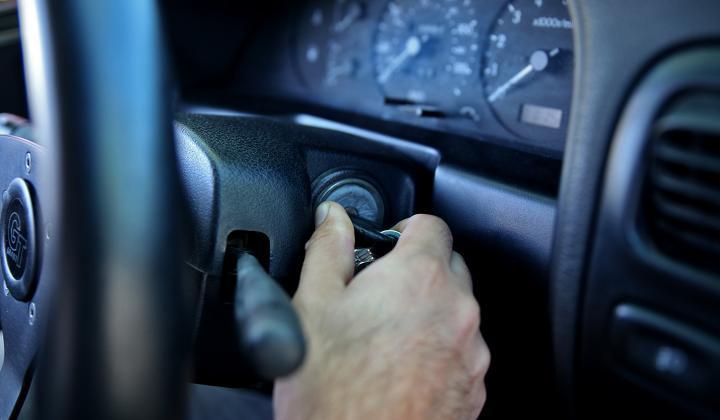We’ve all been there: you insert the key‚ turn it‚ and your car roars to life. But just as quickly‚ it stutters and falls silent‚ leaving you puzzled and stranded. This guide will delve deep into the myriad reasons your car may turn on and then abruptly turn off‚ offering insights‚ troubleshooting tips‚ and suggestions on how to prevent this frustrating issue in the future.
Understanding the Basics
Before we dive into troubleshooting‚ it’s essential to understand some automotive basics. A car’s ignition system is a complex interplay of electrical and mechanical components. When you turn the key‚ you engage the battery‚ which powers the ignition system‚ fuel pump‚ and various sensors. If any part of this system fails‚ your car might start but then fail to stay running.
Common Causes
Here are some of the most frequent culprits behind the “car turns on then turns off” phenomenon:
- Fuel Issues: Insufficient fuel‚ a clogged fuel filter‚ or a failing fuel pump can prevent the engine from receiving the necessary fuel to stay running.
- Electrical Problems: Issues with the battery‚ alternator‚ or wiring can disrupt the electrical flow‚ causing the engine to stall.
- Ignition System Failures: Faulty spark plugs‚ ignition coils‚ or other components can hinder the combustion process.
- Sensor Malfunctions: Modern cars rely heavily on sensors to monitor engine performance. A malfunctioning sensor can send incorrect signals to the engine control unit (ECU)‚ leading to stalling.
- Overheating: If the engine overheats‚ it may automatically shut down to prevent damage. This can be due to a malfunctioning thermostat‚ low coolant‚ or a broken water pump.
- Vacuum Leaks: A vacuum leak can disrupt the air/fuel mixture‚ causing the engine to stall.
Troubleshooting Steps
If you find yourself in a situation where your car turns on and then off‚ follow these troubleshooting steps:
- Check the Fuel Level: Ensure there’s enough fuel in the tank. If the gauge is faulty‚ you might be running on empty.
- Inspect the Battery: Look for corrosion on the battery terminals and ensure they are tightly connected. A weak battery can cause starting issues.
- Test the Alternator: If the battery is fine‚ check the alternator. A malfunctioning alternator might not charge the battery properly;
- Listen for the Fuel Pump: Turn the key to the ‘on’ position (without starting) and listen for a humming sound from the fuel tank. If you don’t hear it‚ the fuel pump may be faulty.
- Examine the Ignition Components: Check spark plugs and ignition coils for wear or damage. Replace any faulty parts as necessary.
- Scan for Error Codes: If you have access to an OBD-II scanner‚ use it to check for any diagnostic trouble codes (DTCs) that may indicate specific issues.
When to Seek Professional Help
While many issues can be diagnosed and potentially resolved at home‚ some problems require a professional touch. If you’ve gone through the troubleshooting steps and your car still won’t stay on‚ consider the following:
- Persistent Warning Lights: If the check engine light or other warning indicators remain lit‚ consult a mechanic.
- Complex Electrical Issues: If you suspect a wiring problem or other complex electrical issues‚ it’s best to seek professional assistance.
- Engine Performance Problems: Any unusual noises‚ smells‚ or performance issues should be evaluated by a technician.
Preventative Measures
To avoid the frustrating scenario of your car turning off unexpectedly‚ consider adopting these preventative measures:
- Regular Maintenance: Schedule regular maintenance checks to ensure your vehicle is in good working order.
- Monitor Fuel Levels: Make it a habit to fill up before your tank gets too low to prevent fuel pump issues.
- Keep an Eye on Warning Lights: Don’t ignore warning lights; they are your car’s way of communicating potential issues.
- Invest in Quality Parts: When replacing parts‚ choose high-quality components to ensure longevity and reliability.
Experiencing a car that turns on then turns off can be alarming and inconvenient. However‚ by understanding the possible causes‚ employing effective troubleshooting strategies‚ and taking preventative measures‚ you can mitigate the chances of this issue occurring. Remember‚ your vehicle is an intricate machine that deserves attention and care. When in doubt‚ don’t hesitate to consult with a professional to keep your car running smoothly.
Stay safe on the roads‚ and may your engine roar with unwavering power!

